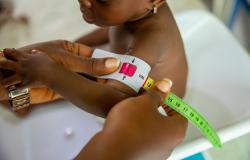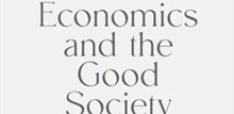Overcoming global malnutrition requires debt justice

Sunit Bagree argues that addressing the world’s nutrition crisis requires the United Nations – not the G20 – to be at the heart of the global sovereign debt system.
The global sovereign debt crisis is fuelling other crises. This includes the global malnutrition crisis, which sees a staggering 2.8 billion people unable to afford a healthy diet.
Recent analysis by Results UK finds that the 16 countries most affected by food crises spent $40.3 billion – an average of 15.8% of government revenue – on external public debt payments last year. Furthermore, the governments of these countries are spending an average of 1.9 times the amount on external public debt payments than they are spending on health.
The G20 Summit will take place in Rio de Janeiro on 18-19 November. The Brazilian Presidency has rightly prioritised tackling hunger, with global food insecurity increasing from 25% in 2019 to 28.9% in 2023.
However, Brazil’s current proposals for improving the global sovereign debt system are inadequate. The main proposal from the Brazilian Government is ‘the inclusion of debtor countries in discussions on external debt’. While this may sound good on paper, it masks the failings of the G20’s approach to debt crises, known as the Common Framework.
As a creation of the world’s most powerful economies, the Common Framework will likely always prioritise the interests of creditors over debtors. Moreover, as the examples of Chad and Zambia illustrate, the Common Framework’s operations are opaque, desperately slow, lacking an enforcement mechanism and unaligned with the Sustainable Development Goals (SDGs).
In November 2022, Chad became the first country to complete the Common Framework process. Yet Chad received no debt relief at all; it only had some of its debt rescheduled.
After lengthy delays, Zambia finally completed the Common Framework process in June of this year. Although the country did receive some debt relief, its debt burden remains deeply onerous. Shockingly, the Zambian Government will have to significantly increase debt payments if its economy performs better than expected, but its payments will not be reduced in the event of a disaster, such as the severe drought that affected the country earlier this year.
The Common Framework needs to be replaced by a sovereign debt restructuring mechanism under the auspices of the United Nations (UN). Such a mechanism would be guided by international human rights law, and thus be independent, transparent, binding and aligned with the SDGs. Unfortunately, six states, including the UK, voted against the establishment of a UN sovereign debt restructuring mechanism almost a decade ago.
Another proposal from the Brazilian Government is ‘debt suspension clauses in the event of climate disasters’. This is better than the deal obtained by Zambia – but it is still nothing better than a minor sticking plaster.
A UN automatic debt cancellation mechanism that complements a UN sovereign debt restructuring mechanism would be far more legitimate and effective. The former mechanism would be for Global South countries affected by economic shocks or emergencies, including climate-related disasters that are largely the fault of Global North countries. A UN automatic debt cancellation mechanism should of course ensure accountability for resources saved as a result of debt cancellation.
It is also necessary for the International Monetary Fund (IMF) to fundamentally reform its approach to debt sustainability analyses, as currently this results in a deeply unhelpful conceptualisation of debt distress. The IMF’s work in this sphere must be more inclusive of civil society, and more open to the need for debt cancellation in order to achieve the SDGs. In addition, the IMF’s use of undemocratic and frequently damaging economic policy conditionality should end. Finally, to break the cycle of unjust debt, it is important for the IMF to champion financing for development and climate goals that takes the form of grants not loans.
The struggle against hunger, and malnutrition more broadly, will not succeed without transformation of the global sovereign debt system. Of course, when the countries most affected by food crises spend vast sums on external public debt payments, they have fewer resources for nutrition investments.
These include specific nutrition interventions such as ready-to-use therapeutic food, vitamin A supplementation and breastfeeding support. Such measures save lives, give children the best start in life, and support the health of pregnant and breastfeeding women and girls. They also include nutrition interventions that address the structural causes of malnutrition. These measures can address the social determinants of malnutrition in an equitable and holistic manner.
While debt justice is crucial, in a world overwhelmed by such high levels of deprivation, more and better official development assistance (ODA) remains an important source of financing for social expenditure in Global South countries. However, only five Global North countries (Denmark, Germany, Luxembourg, Norway and Sweden) have met the UN target of allocating 0.7% of Gross National Income to ODA. Moreover, 13.8% of ODA is spent on supporting refugees and asylum seekers within Global North countries (known as in-donor refugee costs), leaving less money for overseas programmes.
The Results UK report advocates that states achieve the 0.7% target and end in-donor refugee costs (while fully funding asylum and refugee support through non-ODA budgets), in order to boost the quantity of ODA for nutrition. Using the example of the UK, the report also calls for the quality of ODA to be interrogated and improved. In particular, nutrition investments should be made in ways that listen to affected people, reduce inequalities, strengthen systems, and promote cross-sectoral collaboration and coherence.
The G20 Summit is a real opportunity to transform – rather than merely tinker with – the global sovereign debt system. It is also an opportunity for the richest economies to reaffirm their commitments to good quality ODA. Malnourished people across the globe are depending on world leaders to step up to the plate.
Sunit Bagree is Senior Policy Advocacy Officer at Results UK.
Photo by Lagos Food Bank Initiative


